50th Reunion Off Campus Study Forum
Sunday, April 11
7-8:30 p.m. Central
Off-campus study has been a major part of the Grinnell experience for over half a century. It has changed many lives and steered many careers into new directions that were unanticipated at the time of participation. This 90-minute panel discussion will focus on off-campus study and the ways it impacted the lives of those who participated, both during college as well as after graduation. The panel will consist of representatives from 6 of the programs that were offered to members of the classes of 1970 and 1971 who will reflect on their experiences. The moderator will elicit responses from the panelists on several topics. The forum will then be open for questions and comments from online attendees. At the end of the forum, Alicia Stanley, director of off campus study with the Institute for Global Engagement will provide an overview of the international and domestic opportunities that are available to the current students.
Participants
Mary Brooner ’71, moderator
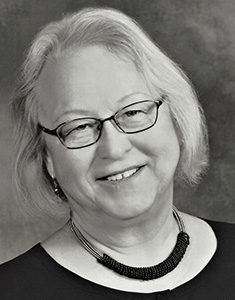 Mary was a History Major and student of Joe Wall and Al Jones. In the Spring of 1969, she spent an exchange semester at LeMoyne-Owen College in Memphis, Tennessee. Her time spent in Memphis changed her future in ways she could not have imagined.
Mary was a History Major and student of Joe Wall and Al Jones. In the Spring of 1969, she spent an exchange semester at LeMoyne-Owen College in Memphis, Tennessee. Her time spent in Memphis changed her future in ways she could not have imagined.
Mary was a Thomas J. Watson Fellow in 1971 and spent her time in countries of Africa and South Asia, studying women in development and living life courageously, which is a lot of what the Watson experience is about. In 1991 she took a 2-year professional sabbatical and served as the executive director of the Watson Fellowship Program for 2 years. In her view, the directorship was even better than the fellowship. Later, in the mid-1990’s she helped to create the Grinnell Wall Service Awards program for alumni and she has served on the Alumni Council.
Mary Brooner, class of 1971, is a retired lawyer and lives in Eugene, Oregon. Much of her career was with Motorola in its Government Relations Office in Washington, DC. She worked on many telecom issues, but what captured her lifelong interest during her career was improving accessibility of communications products and services for persons with disabilities and she continues to work with industry on these issues today.
In retirement she has enjoyed forgetting law for the most part and discovering quilting. She has not, however, forgotten Grinnell, its place dear to her heart, and her Grinnell friends!
Lynn Adams ’70
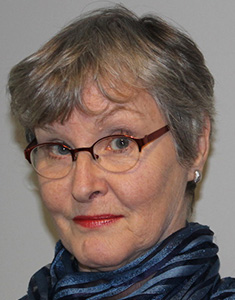 I participated in Grinnell's Fifth Year Abroad--India after graduation, for the 1970-1971 academic year. I was the tenth Grinnell graduate in as many years to be in residence at Ahmednagar College, in a fairly small rural town, Ahmednagar, Maharashtra State. In addition to accompanying the Christian chapel services on the organ and leading the choir, each Grinnellian was given responsibilities corresponding to his or her interests. My predecessor was a Sociology major and joined students working on rural agricultural development projects. As an English major, I supplemented the instruction in English literature.
I participated in Grinnell's Fifth Year Abroad--India after graduation, for the 1970-1971 academic year. I was the tenth Grinnell graduate in as many years to be in residence at Ahmednagar College, in a fairly small rural town, Ahmednagar, Maharashtra State. In addition to accompanying the Christian chapel services on the organ and leading the choir, each Grinnellian was given responsibilities corresponding to his or her interests. My predecessor was a Sociology major and joined students working on rural agricultural development projects. As an English major, I supplemented the instruction in English literature.
After Grinnell and India, I lived in Seattle; Florence, Italy; the Philadelphia area; and in 1978, returned to Seattle for the rest of my life. My first jobs led me into editing for physicians writing for clinical journals. With second husband Del, I raised my daughter, Amelia. When the personal computing revolution started, my work morphed into computer support at Fred Hutchinson Cancer Research Center. The last phase of my career was building websites.
With my present husband, David, I am grandparenting Amelia's son and David's grandchildren.
One of my greatest life experiences was the year in India. I wrote poetry in the 70s, enjoyed weaving in the 80s, sang in a non-professional folk band in the 90s, paddled in the Puget Sound Canoe Journey for two years in the Oughts. In the Teens I finished a dystopian novel. I am active in an Episcopal church and related organizations. Currently I am working on being a better anti-racist.
Jon Royal ’70
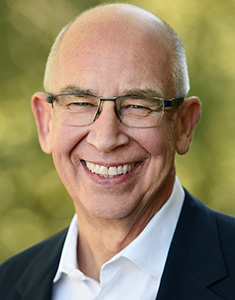
Jon Royal is a Teacher and Master Practitioner of Unlimited Body and Unlimited Breath. Following graduating from Grinnell College in 1970, and a brief stint in the Army Reserves, Jon began his career as a counselor and later administrator in corrections and substance abuse. After rising through the ranks from counselor to Vice President and Assistant Director of the agency in just nine years, Jon left the nonprofit human service sector for new challenges.
He spent the next fifteen years working in the financial services industry as an insurance agent, registered representative, registered investment advisor and Certified Financial Planner eventually operating his own financial planning firm, Brauer and Royal Financial Services.
Jon’s insatiable drive to better understand people and how to help them achieve their potential spurred him into more personal introspection and self-discovery. While operating his financial planning firm he began studying numerous systems of healing, personal development and spirituality, working with healers and teachers from Australia, Bali, Canada, Denmark, England, France, Italy, Ireland, Spain, Sweden, Tibet and the United States. In the early 1990’s he co-founded the Mystery Tour, a training in Metaphysics and The Peace Conference, a retreat on relationships.
Jon’s growing knowledge and interest in the areas of personal development and holistic health led him to sell his financial planning practice in 1995 and strike out as a holistic practitioner. In 1997 he co-founded Unlimited Network. At the beginning of 2002 Jon sold his interest in Unlimited Network so that he could focus more on his private practice and pursue other interests under his new endeavor The Center for Health and Harmony. Jon has spent the last twenty plus years traveling extensively nationally and internationally in his role as teacher, practitioner, presenter and entrepreneur.
On a more personal note, Jon has two grown children and one three-year-old grandchild who is the joy of his life. He and Penny, his partner for the past 29 years, enjoy their families and doing projects. The most recent project was a shed in the backyard built to match their 1887 Victorian house. They also like to travel and look forward to doing that again soon. Jon also sings in the church choir (virtual recordings these days) and serves on the neighborhood association board.
Doug Russell ’71
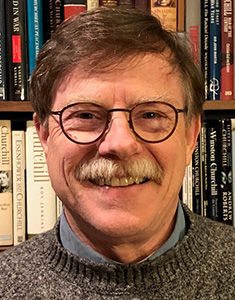
I was born in Chicago and grew up in Elmhurst, Illinois where I attended public schools. I majored in political science at Grinnell and graduated in 1971. I served in the U.S. Army, Military Intelligence branch from 1971 to 1974. I spent the 1974-75 academic year on a Watson Fellowship (awarded in 1971) studying new town planning in Western Europe. I attended law school at the University of Iowa graduating in 1978. I practiced law in Iowa City from 1978 until 1999 when I was appointed as an Iowa District Court Judge by Governor Tom Vilsack. Aside from my legal career I have pursued an interest in international travel and the study of history. I have authored two books on the military aspect of the career of Sir Winston Churchill.
In the Fall semester 1969, I attended the Washington Semester Program, The School of Government and Public Administration, American University, Washington, DC. The program included classroom lectures but was focused on a series of seminar speakers such as Congresswoman Shirley Chisholm (D-NY) and Justice William O. Douglas. Outside the classroom, the semester included the first modern era selective service lottery and the moratorium marches against the Vietnam war. I participated in both.
I live in Iowa City with my spouse, Sue Feeney, an Iowa City native, who has blessed me with four step-children who have, in turn, blessed me with three grandchildren.
Hank Scheff ’71
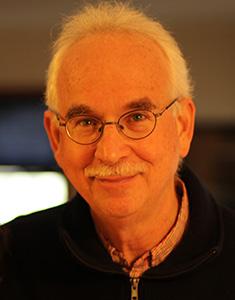 I grew up in Chicago, graduated from South Shore High School in 1967, and Grinnell College was my first choice. I was raised by progressive parents and grew up reading The Nation, The New Republic, I.F. Stone's Weekly, Ramparts, etc. I was an anti-war activist at Grinnell, participated in demonstrations, wrote for the underground newspapers, etc. I majored in Political Science because it was easy (and, for the most part, ridiculous as a discipline). I met Saul Alinksy at Grinnell as part of the 1968 Convocation when he asked to meet with the SDS Chapter. He said, "you are all interesting to me because you believe in action, but you are full of it" and he explained why, and he made a lot of sense.
I grew up in Chicago, graduated from South Shore High School in 1967, and Grinnell College was my first choice. I was raised by progressive parents and grew up reading The Nation, The New Republic, I.F. Stone's Weekly, Ramparts, etc. I was an anti-war activist at Grinnell, participated in demonstrations, wrote for the underground newspapers, etc. I majored in Political Science because it was easy (and, for the most part, ridiculous as a discipline). I met Saul Alinksy at Grinnell as part of the 1968 Convocation when he asked to meet with the SDS Chapter. He said, "you are all interesting to me because you believe in action, but you are full of it" and he explained why, and he made a lot of sense.
Like a lot of City kids who volunteered to live in the cornfields, I was getting antsy after 2.5 years and thought a semester in Chicago would be fun and educational. It WAS! I felt connected to Chicago in totally new ways. I returned to Grinnell my senior year because, why not? Didn't want to disappoint my parents, for sure. Had no idea what I was going to do. Figured I was 1 short year away from getting the degree, get it over with.
After graduating in May 1971, I took the LSAT and applied to law schools for admission in the Fall of 1972. Meanwhile I was looking for meaningful work for my "gap" year. ACM Urban Studies Prof. Harold Baron (Hal) introduced me to Community Organizers Robert Creamer and Paul Booth. They offered me a job with the Citizens Action Program (CAP), an organization sponsored by Alinsky's Industrial Areas Foundation (IAF). It was funded by a small foundation; I was to get $50/week for 3 months to help them investigate issues of concern to residents of several Chicago neighborhoods. There were five of us. Four went back to school that Fall, and I kept getting the foundation grant renewed. By the following fall (1972) it was time to go to law school. But CAP offered me a full time staff position with a raise to $140/week. This was WAY MORE fun than law school, so I took the job and never looked back.
I spent 4 years at CAP honing my skills as a tactical researcher/organizer, mentored by some of the most talented organizers around. From there I lucked into a job as a trainer/researcher for the Amalgamated Clothing and Textile Workers Union (ACTWU) Midwest Division, based in Chicago. By 1979 I had moved to their Organizing Department where I helped direct several union organizing campaigns around the Midwest.
This was the beginning of the union busting era in the U.S, and we were winning elections but losing the war. And I was on the road all the time, which was not going to work well with my girlfriend, who I wanted to marry. I was looking for an organization I could help over the long term. So, when I was offered a job with the Illinois division of the American Federation of State, County, and Municipal Employees (AFSCME), I took it in January 1981. The next decade saw exponential growth for AFSCME in Illinois, we went from 20,000 members to 75,000. I eventually became Director of Research and Employee Benefits there, helped lead a campaign for major public employee pension benefit improvements, was chief negotiator for health care and other benefits, and created and ran an innovative Health Improvement Program as part of the staff's self-funded health plan. I retired in Oct. 2012 and maintained a consulting relationship with AFSCME through the end of 2019.
I have been married to Bobbie Scheff for nearly 39 years. We have three children and will have two grandchildren by the time this forum takes place. We live in Evanston, IL. My hobbies include playing clarinet in several bands; playing guitar and ukulele for my granddaughter (her current favorite is the Hokey Pokey); cooking; cycling (including touring by bicycle); and snowshoeing (new this winter).
Chris Vaughan ’71
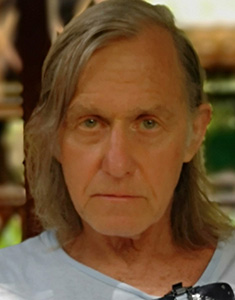
I was born in 1949 in Washington, D.C. and lived there, in Germany and California until moving to the Quad Cities (Davenport and then Bettendorf, Iowa) in 1954. After entering Grinnell in 1967 and deciding to study biology, I spent my junior year (1969-1970) in the newly created ACM-Costa Rica Program. At the time, it was the only US off-campus undergraduate neotropical biological research program; although colleagues in the program also studied economics, anthropology, sociology, and agriculture. Enthralled by the neotropical biodiversity and rural people, I returned to Grinnell to finish my senior year. I was also a CO against the Vietnam War and violence against humans and animals; so, I applied for and was accepted into the Peace Corps. The US Department of State sent me to Costa Rica to work in the newly created Department of National Parks. Surprise!
I lived between 1971-1997 in Costa Rica, working first with the newly formed Department of National Parks (1971-1974), then at Costa Rica’s Universidad Nacional (UNA), teaching seven distinct courses related to wildlands and wildlife management in the Environmental Sciences School. I also studied for and obtained a M.Sc. at the University of Costa Rica-CATIE in natural resources-forestry. With several colleagues, students and assistants at UNA, we continued to study wildlands, but I focused on neotropical wildlife. In 1985, we created Latin America’s first graduate program in wildlife management and conservation and up to 2010, over 200 graduate students from 18 countries had received their M.Sc. with us.
Also, between 1997-2009 (returning to UNA for 12 months in 1999), I was in the Department of Forest and Wildlife Ecology at the University of Wisconsin-Madison, which included coordinating a USDA project in Costa Rica cacao and biodiversity project. This included several trips each year to Costa Rica. I also studied for and received my PhD in the Institute of Environmental Studies at UW; afterwards I gave the following courses there: a) Extinction of Species, and b) Ecosystem Management.
Beginning in the early 1980’s, I became an advisor to ACM-Costa Rica program students interested in the natural resources and biology fields and advised over 50 ACM students, many from Grinnell. Between 2009 and 2014, I returned to Costa Rica from Madison to become the Director of the ACM-Costa Rica program where I had been a student 40 years before. In 2014, ACM-Costa Rica celebrated its 50th anniversary and the International Journal of Tropical Biology and Conservation (University of Costa Rica) published a special section on ACM-Costa Rica research which included a summary of the program (Vaughan, Magnan (Grinnell graduate), McCoy, 2014) and 10 scientific articles based on ACM-Costa Rica students research (Vol 62, No. 3(2014)). A portion of my work can be found in the University of Costa Rica online archives and google my name if you want more information on the ACM-Costa Rica program and/or my past.
Based on my ACM-Costa Rica experiences as a student, advisor and director, I highly recommend undergraduate students spend a semester (or year) in an off-campus program. However, clarify beforehand if the off-campus program fulfills your needs and desires. They usually offer more than only academics; ACM-Costa Rica students lived with local middle class rural and/or urban families while in classes or even in national parks guard stations while conducting field research. This will require in-depth research, including former students’ reviews.
John Wabaunsee ’70
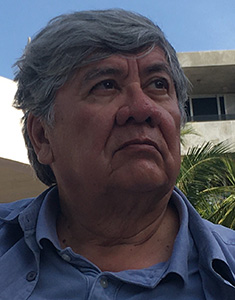
The Newberry Library is a private research library on the Near North Side of Chicago. The Newberry is noted for its genealogy, Native American, 19th and 20th century literature and incunabula (books printed before 1501). The Newberry Semester in the Humanities is sponsored by the Associated Colleges of the Midwest. There were 15 students led by two faculty on leave from member colleges. Students and faculty lived in Newberry owned apartments on Rush Street two blocks from the library. The semester consisted of two seminars, 19th century US history and 19th century American literature, resulting in two papers and presentations based on research in the Library.
John Wabaunsee was born and raised on the Rosebud Sioux Reservation in South Dakota. He is an enrolled member of the Prairie Band Potawatomi Nation in Kansas. He graduated from high school on the Rosebud Reservation and attended Phillips Academy in Andover Massachusetts.
Before transferring to Grinnell in September 1967, he attended the University of Michigan and worked as a VISTA volunteer as a community organizer on the Fort Belknap Reservation in Montana. At Grinnell he met Susan Dostal ’68. In February 1969 he started the Newberry Semester and in May 1969 he and Susan married. He did not return to Grinnell. While working in Chicago he learned he could go to law school without finishing his undergraduate work. He started at the DePaul University College of Law in September 1970 and graduated in 1973. John was an attorney for five years at the Native American Rights Fund in Boulder, Colorado. He represented tribes and individuals in cases involving treaty rights, education, and land ownership. In 1978 he left the Fund to head the Indian Desk of the Legal Services Corporation where he was responsible for developing and expanding civil legal services programs serving Native Americans. In 1980 he moved to LaCrosse, Wisconsin to direct Western Wisconsin Legal Services, a civil legal services program serving low-income residents of thirteen counties in rural Wisconsin and members of the Ho-Chunk Nation.
After seven years at Legal Services John joined the Wisconsin State Public Defenders Office 1987 as a staff attorney handling a general criminal defense caseload. In 1992 he was appointed the Regional Manager in LaCrosse supervising 14 attorneys in four offices. In 2000 John returned to a staff attorney’s position where he handled difficult or high-profile criminal cases on a statewide basis. In 2008 John retired as a public defender and the full-time practice of law. While he was in the Public Defender’s office, he was able to continue his work in Indian Law. He assisted the Ho-Chunk Nation of Wisconsin and his own tribe in the development of their court systems. In 1993 he was appointed Chief Judge of the Prairie Band Potawatomi Nation Court of Appeals. The Ho-Chunk Nation appoints him as a special judge on a case-by-case basis to their trial and appellate courts. From 2010 to 2016 he was Chief Justice of the Nottawaseppi Huron Band of Potawatomi of Michigan Supreme Court.
The Newberry Semester was consistent with John’s plans to obtain a Ph.D. in American Studies or American History. The Newberry was closer to Susan who was teaching school in the Chicago suburbs. The Newberry opened the door to Chicago. After the Newberry John worked as a community organizer in the Uptown neighborhood of Chicago. It was while working as a community organizer that he met lawyers who were committed to social change and pointed him towards law school. While in law school John continued to work at the Newberry in the Center for History of the American Indian. John and Susan are still together, having just celebrated their 51st wedding anniversary. They have two sons and four grandchildren. Susan and John now live in Apple Valley, Minnesota